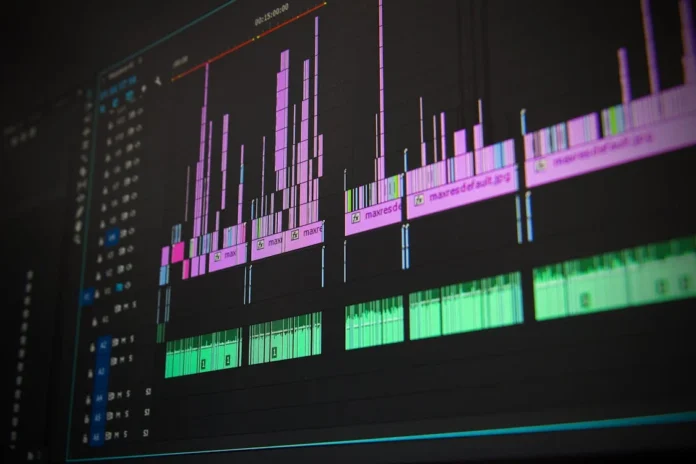We are accustomed to thinking of redaction in terms of documents, but audio files can be just as vulnerable to sensitive data that needs to be removed securely. Enter audio redaction software—a powerful tool that’s quickly gaining attention in various industries, from media to law, for its ability to enhance privacy and security.
What is Audio Redaction Software?
Audio redaction software is designed to automatically or manually detect and redact (or remove) specific pieces of audio content that contain sensitive, confidential, or private information. Such pieces of information include personal identifiers, confidential conversations, or privileged information that cannot be disclosed in a public context. The software works by analyzing audio files, identifying the target information, and then removing or altering it in such a way that it no longer can be reconstructed.
For instance, during courtroom recording, audio redaction software can eliminate from the recording a witness’s private data, for example, his telephone number or address, and confidential testimonies before making the recording accessible to the general public. In media and broadcasting, it can conceal private conversations to help companies avoid any privacy breach and live up to legal standards.
Why is Audio Redaction Software Important?
Digital communication may increase the recording and sharing of audio content exponentially, but this development raises new privacy concerns that were largely unheard of in previous privacy contexts. Here are some reasons why audio redaction software becomes increasingly important:
1. Protecting Personal and Confidential Information
Each time sensitive information is released whether for professional purposes or personal purposes, there’s a possibility it could be abused. In such fields as health care, police forces, and legal procedures, there is an imperative to protect private information in cases where information has to be released to the public. Audio redaction software allows for such automation without any need for human intervention to make it private in terms of what’s released into the public eye.
2. Privacy Compliance
Privacy is a big word, and recently, laws that have become stricter include GDPR or General Data Protection Regulation, along with CCPA or California Consumer Privacy Act, which mandates organizations to keep such personal data secured. Audio redaction software prevents businesses from giving out PII or confidential information without protection as required by laws.
3. Building Trust and Reputation
For businesses, particularly those dealing with sensitive data (such as legal, health, or finance), trustworthiness is essential. Irrelevant or improperly redacted audio content can easily cause reputational damage, result in legal ramifications, and lose customers. Audio redaction software has come to provide an efficient, reliable solution against privacy breaches, which strengthens the credibility and trust of the public in the company.
4. Streamlining Workflow and Efficiency

Manual redaction of audio content is a labor-intensive task requiring highly skilled professionals to listen through hours of content and edit accordingly. Audio redaction software automatically does this job, allowing companies to redact large volumes of audio files in the shortest possible time, thereby saving time and avoiding the likelihood of errors. The ability of the software to identify and redact specific keywords or phrases based on pre-set criteria means that privacy can be maintained with minimal effort.
Key Features of Audio Redaction Software
As the need for audio redaction increases, software developers are embedding a range of features that make it much more accurate and efficient to redact. Some of the main features that you should find in most modern audio redaction software are as follows:
1. Automatic Speech Recognition (ASR)
The most significant advancement in audio redaction software is automatic speech recognition, or ASR. This technology allows the software to transcribe spoken words into text, which makes it easier for the system to detect and locate sensitive information. Whether it’s names, addresses, or confidential terms, ASR can be programmed to flag or redact specific terms automatically.
2. Keyword Detection
Most audio redaction tools include keyword detection. Keyword detection is a feature that lets the user define certain words, phrases, or even tones of voice to flag for redaction. It’s useful in health care industries where redacting patient names or other medical information might be necessary to adhere to privacy laws.
3. Silence Insertion
Some audio redaction software, after detecting sensitive information, provides the user with the option to insert silence or an audio “mask” over the redacted part, thus ensuring that it is no longer audible, but the flow of the recording is not affected. This can ensure the integrity of a conversation or meeting while ensuring confidentiality over details.
4. Customizable Options for Redaction
It will vary from industry to industry as to requirements for items that can be redacted. Audio redaction software usually comes with options that are customizable to the users’ discretion on what types of information should be redacted. This range may include names and numbers, specific topics, or confidential discussions.
5. Search and Edit Functionality
Advanced audio redaction software allows for search functionality, which means that users can search the audio file for specific terms or phrases that might need to be redacted. This makes the process more efficient because users do not have to listen to the entire recording manually.
Industries Benefiting from Audio Redaction Software
1. Legal Sector
Often, audio recordings involved in the legal process—say, of court hearings or depositions, or client communications—contain confidential and privileged information. Audio redaction software can assist law firms and courts in maintaining privacy by automatically eradicating confidential data from recordings before they are released to the public or archived.
2. Healthcare
Patient confidentiality is the most important aspect in the health sector. When recording patient consultations, medical professionals or researchers must ensure that all personal and medical information is kept private. Audio redaction software helps hospitals and clinics remain HIPAA-compliant by removing sensitive data from recorded conversations or medical examinations.
3. Law Enforcement
Audio redaction software is a vital tool for law enforcement agencies in ensuring privacy protection during investigations. For instance, whenever recordings are released, be it about arrests, interrogations, or surveillance, the software protects confidential data such as personal identifiers or case details.
4. Media and Broadcasting
Media houses usually capture interviews, public speeches, and press conferences. These have to be edited before broadcast. Audio redaction software ensures that the sensitive or off-the-record information is kept secret and thus prevent accidental leakage as well as protects the rights of individuals.
The Future of Audio Redaction Software
With advancements in technology, audio redaction software is bound to get more sophisticated and automated. For example, better algorithms that use AI will better understand the context and hence detect sensitive information better. The growth in demand for audio redaction software is expected as privacy laws are getting tighter. The use of this audio redaction software is expected to become necessary in most industries, hence making confidentiality a guarantee.
Conclusion: An Essential Privacy Protection Tool
With the recorded audio volume being increasingly high, coupled with greater importance on privacy, audio redaction software has emerged as an indispensable tool to protect sensitive information. Whether legal, healthcare, law enforcement, or media, this technology allows the protection of privacy laws and at the same time increases transparency and trust.
By automating the process of identifying and redacting sensitive audio content, organizations can reduce human error, improve efficiency, and better protect individuals’ rights. As privacy concerns continue to grow, the role of audio redaction software in enhancing security and ensuring confidentiality will only become more critical.



